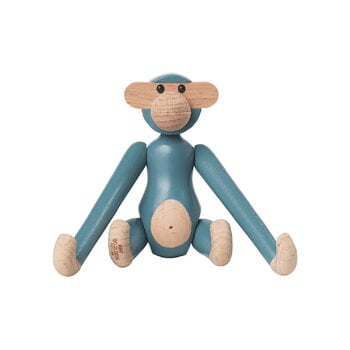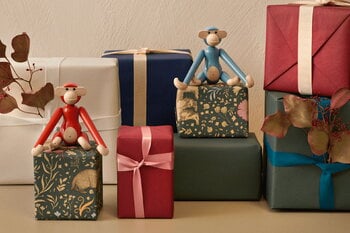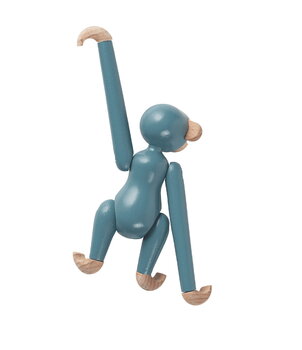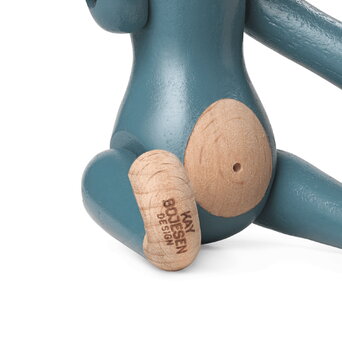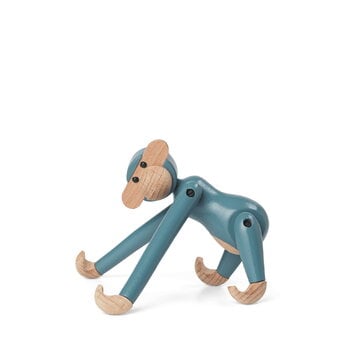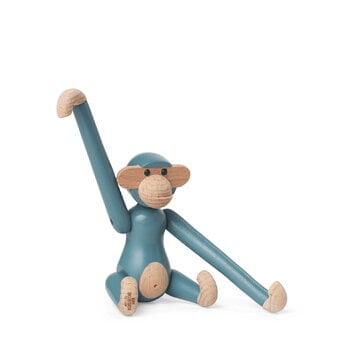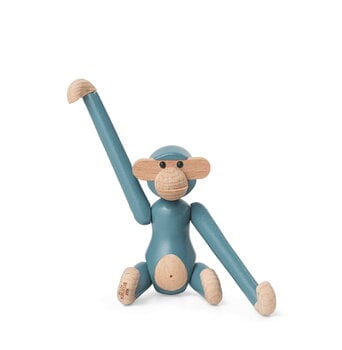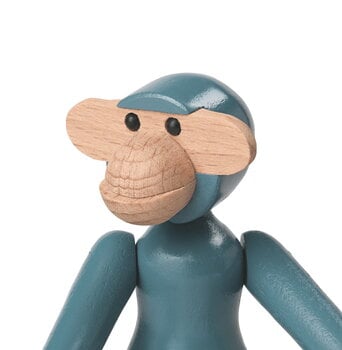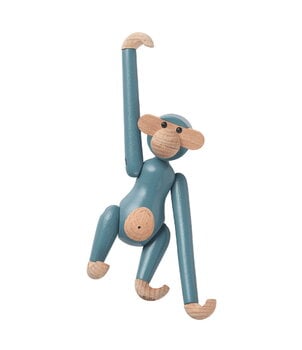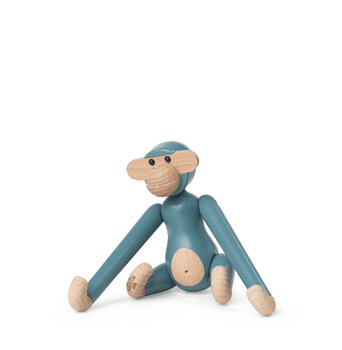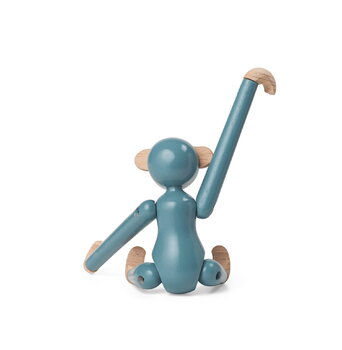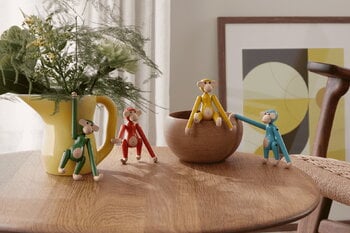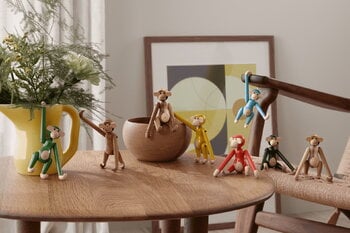The Wooden Monkey, designed by Kay Bojesen, is a beloved classic of Scandinavian design. This mini-sized monkey is made of beech, coloured with lovely blue and measures 9,5 cm in height. Please note that the head of the mini monkey, the smallest member of Bojesen's monkey family, is not movable.
Bojesen's monkey with its mischievous look and light-coloured belly has transformed kids’ rooms into jungles and sparked dreams of far-away places since 1951. It has a permanent role on Danish television as the mascot of wildlife programs and as a prize in quiz shows. Every monkey consists of 31 wooden parts and is crafted by hand. Due to slight variations in shade and wood grain, the monkeys have a unique and charming personality.
